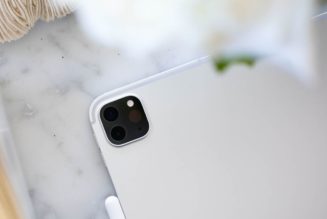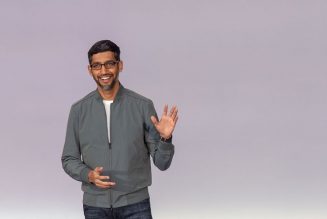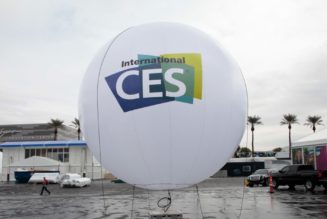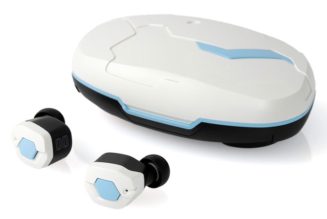This week was supposed to be the first day of Google’s big reentry into flagship smartwatches. Samsung is back on board after years of Tizen-based wearables, with its new Galaxy Watch 4 that runs the new, revitalized Wear OS 3. It’s the smartwatch OS that merges the best of Google and Samsung’s discrete platforms together.
But there was just one issue: Google was strangely absent from the proceedings. In fact, aside from a few oblique mentions of working with Google on the software, you might have watched Samsung’s whole presentation and not even caught that the new watches were running on Wear OS at all.
On the one hand, this is extremely par for the course for Samsung. It’s practically a running gag at this point that Samsung goes out of its way to avoid mentioning Google or Android when it discusses its new phone releases. And indeed, the Galaxy Z Flip 3 and Fold 3 sections were full of praise for Samsung’s One UI, with nary a mention of Android 11 or Android 12 or any improvements Google has been making on an OS level to enable those devices to work better.
Seeing a similar dynamic here with the Galaxy Watch and Wear OS 3 — one that focused more on Samsung’s One UI improvements and software layer more than anything that the new Google collaboration enables — makes sense given Samsung’s history.
:no_upscale()/cdn.vox-cdn.com/uploads/chorus_asset/file/22775097/BFARSACE_210810_4707_5.jpg)
But the Samsung-heavy announcement highlights just how much of an uphill battle Google has here, and how much it’s going to have to rely on Samsung (which has very different goals than Google) as it looks to revitalize its wearables.
And it’s hard to look at the Galaxy Watch 4 as anything other than a compromise of a device for Google. It’s a flagship Wear OS 3 watch that runs Samsung’s UI on top, won’t ship with Google Assistant, and comes packed with default apps that compete with Google’s own services.
The default health tracking app on Wear OS is Samsung Health. And the default payment app? Samsung Pay. The default assistant? Bixby. The list of default apps goes on: Messages, Photos, Calendar, Clock, Music and more are all Samsung’s version. You can manually install Google’s version of these apps, but it’s a hassle.
It may be Google’s operating system, but this is definitely Samsung’s watch.
And while Samsung is arguably a more selfish partner than Google may have hoped for to relaunch its Wear OS platform, Google also doesn’t have much of a choice. The list of Wear OS partners in 2021 isn’t long or distinguished. Motorola and LG haven’t made smartwatches in years, OnePlus, RealMe, and Oppo are all using their own operating systems, and Fitbit — while now owned by Google — has yet to embrace Google’s operating system at all.
In 2021, your best bet for a Wear OS watch is either TicWatch or Fossil, which — while having done an admirable job of trying to carry the platform thus far — aren’t the kind of big name partners on the caliber of Samsung. Neither of those companies looks ready to release a Wear OS 3 watch for some time, either, with Fossil already confirming that its holiday releases will still be stuck on the old Wear OS platform. (With upgrades coming sometime next year.)
There’s added confusion, too: Samsung’s Galaxy Watch, for example, will use Samsung Health for at least some of its fitness services. You can install Google Fit, but it feels like it’s tacked on this watch. And so far as we can tell, you can’t switch from Samsung Pay to Google Pay or from Bixby to the Google Assistant on this watch. And the Galaxy Watch won’t work with iOS devices, something that Google won’t clarify as limited to just Samsung’s model or a potential limit of all Wear OS 3 watches.
So what does Google get out of the Galaxy Watch? Well, at the end of the day, the new Wear OS-powered Galaxy Watch is on Google’s OS and does rely on critical Google services like the Play Store for apps. It’s more compatible with non-Samsung Android phones and will work with Google services like Maps and Gmail (even if some of those will have to face Samsung-branded competition).
Additionally, the Wear OS smartwatch market is still pretty stagnant right now, so it’s not like Google has anything to lose by letting Samsung do a heavily Samsung-focused watch. Anyone who buys into the Galaxy Watch 4 is another user to help bolster the Play Store, and a bigger audience for developers looking to invest in Google’s platform.
Plus, with Google’s past investments in smartwatches (a list that includes its $2.1 billion purchase of Fitbit and a mysterious $40 million acquisition from Fossil in 2019), it’s possible the current status quo won’t last forever. If Apple and Samsung have shown anything, it’s that sometimes the best way to get a great smartwatch is to just do it yourself — and the upcoming Pixel 6 seems like it could use a matching high-end smartwatch to go with it.








